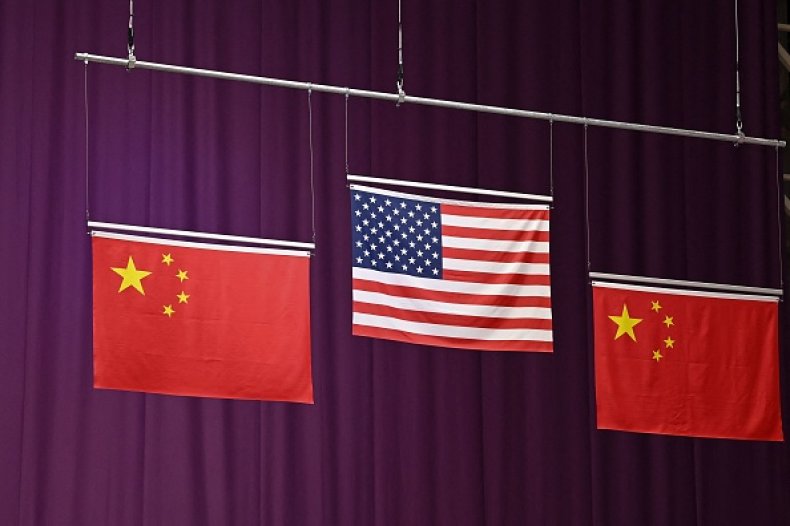Can the US Beat China in Medals Race at Olympics? China Takes Early Lead
Comparisons and competition between the United States and China seem to be an eternal process. From the mightiest of countries in the world to trade wars and political standoffs, there usually tends to be more conflict than resolve between the two super powers.
Former President Donald Trump, after imposing tariffs on Chinese goods, criticized Beijing for mishandling the COVID-19 coronavirus, which originated from a lab in Wuhan. He even banned travel from China to the U.S. as the pandemic looked evident.
Then there are the 2022 Beijing Winter Games, which many lawmakers have called for a boycott, citing human rights violations against the Uyghurs in the northwestern part of the country, and China's treatment of Mongols and the Hong Kong people.
The playing arenas for sports are another fierce battleground.
That brings everything full circle to the 2020 Tokyo Olympics, which were delayed a year because of the coronavirus. China and the United States are expected to be among the top two or three countries in the total medal count.
The Chinese have taken an early lead in both overall medals and gold medals. Here are projections for the total gold medal count, which also include host country Japan, Great Britain and the Russian Olympic Committee (ROC).

The United States is the only country to amass at least 1,000 gold medals in the history of the modern Olympics, something the Americans accomplished at the 2016 Rio de Janeiro Summer Games. Prior to Tokyo, the Americans had won 1,022 gold medals (2,522 overall medals), which is more then the next two countries combined: Russia and Germany—which includes the Soviet Union and combined East and West Germany.
The United States has won the most medals—and most gold medals—at each of the past two Olympics (2012 London and 2016 Rio). China had the second-most medals in 2016, a whopping 50 medals behind the U.S., but only 20 fewer gold medals.
In London, the United States had eight more golds than China, and just 13 more overall medals.
The last time the Americans did not win the gold medal battle was 2008, when China led the way with 48 golds to 36 by the Americans. And that includes American Michael Phelps winning eight of those at the Beijing Games.
This year's race could be tight again, and China has taken the early lead, 11-10 overall and 6-4 in gold medals, after just two days of medal events (it's likely to change Sunday night with Katie Ledecky and Caeleb Dressel swimming and the U.S. men's archery team aiming for gold). The Games started Friday, July 23 and will run until the Closing Ceremony on August 8.
The Russians will not have a full team this year because of a 4-year ban for doping allegations, but some of its countrymen will participate under the Russian Olympic Committee (ROC) moniker, and not under the Russian flag.
The absence of the Russians will open spots for other countries to win more medal spots.

The Chinese have looked strong early in shooting with five medals and weightlifting with three medals. They also have a fencing gold medal, they won the synchronized springboard diving and won a bronze in the men's 68kg taekwondo.
The Chinese will be favored to potentially sweep table tennis, continue their dominance in men's and women's diving, threaten the Americans and ROC in gymnastics and get more medals from swimmers and track athletes.
The United States has gotten off to a shaky start with losses in men's basketball and women's soccer, and the women's gymnastics team qualified second after an off-day performance by Simone Biles.

